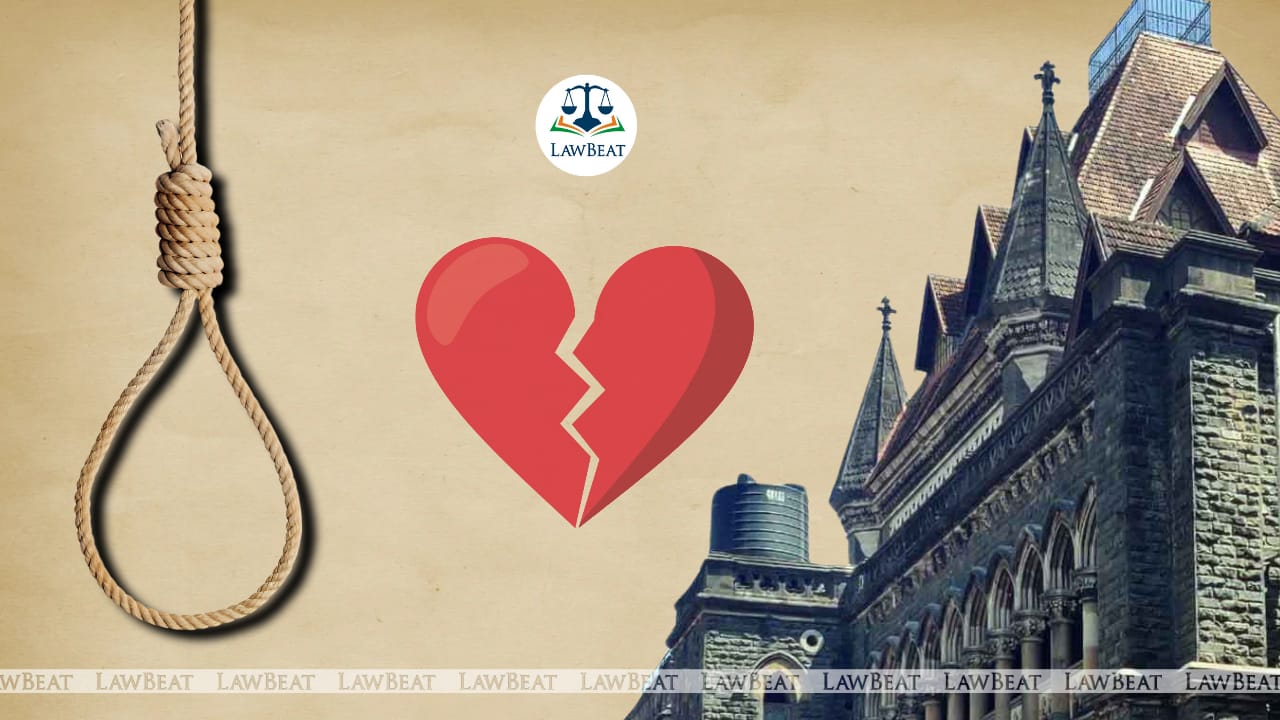Breaking Up, Refusing to Marry Not Sufficient to Constitute Abetment of Suicide: Bombay HC

The court found that the physical relationship between the parties, over a considerable period of time, was out of mutual love and by consent of the deceased victim
The Bombay High Court’s Nagpur bench has ruled that a man cannot be held responsible for abetting the suicide of a woman merely because he ended their nine-year-long relationship and refused to marry the deceased victim.
The court, presided over by a Single judge bench of Justice Urmila Joshi Phalke, discharged the accused, stating, “It is only a case of broken relationship which by itself would not amount to abetment to commit suicide…merely because the applicant refused to marry her, that by itself would not amount to instigate or provoke the deceased victim to commit suicide.”
The applicant/accused, was in a nine-year relationship with the deceased victim, who committed suicide on December 3, 2020, leaving a note detailing their relationship. It was alleged that the applicant promised marriage, engaged in a physical relationship, later ended the relationship, and began seeing another woman, leading to the victim's depression and suicide.
The victim's father filed a complaint accusing the applicant of abetment to suicide. Following an investigation, which included seizing the suicide note and WhatsApp chats, a chargesheet was filed under Section 306 of the Indian Penal Code (IPC).
The applicant sought discharge, arguing that the evidence did not establish abetment, and a breakup alone cannot be considered a provocation for suicide. The Sessions Court rejected the plea, citing sufficient grounds in the suicide note to frame charges. The applicant challenged this decision before the High Court.
The court observed that neither the note nor the chats showed that he instigated or provoked her to take such a step, pointing out that the relationship was consensual and based on mutual affection. It was further emphasised that physical relations between them were not established on the promise of marriage. The court noted: “Recital of the suicide note also reflects that they were in relationship for nine years. It also nowhere states that the applicant had developed physical relationship with the deceased victim on the promise of marriage. On the contrary, it shows that it was consensual relationship and continued for nine years as one girl with whom the applicant had a communication and, therefore, the relationship was broken.”
Agreeing with the man’s contentions, the court emphasised the lack of a direct causal link between the breakup and the woman’s death. “There must be direct or indirect incitement to the commission of suicide and the accused must be shown to have played an active role by an act of instigation or by doing certain act to facilitate the commission of suicide,” the court said, observing that the suicide by the deceased victim was not an immediate result of the said broken relationship as the applicant had denied a love relationship in July 2020, whereas the suicide occurred in December 2020.
The court further clarified, “In order to bring out an offence under Section 306 of the Indian Penal Code specific abetment as contemplated by Section 306 of the Indian Penal Code on the part of the accused with an intention to bring about the suicide of the person concerned as a result of that abetment is required. The intention of the accused to aid or to instigate or to abet the deceased to commit suicide is a must for an offence under Section 306 of the Indian Penal Code.”
As a result, the High Court overturned the Sessions Court's decision and discharged the accused.
Cause Title: Vaibhav Mawale vs State of Maharashtra [CRA 174 of 2024]
Appearances: Advocate Akshay Sudame for the applicant; Additional Public Prosecutor MJ Khan for the State.
